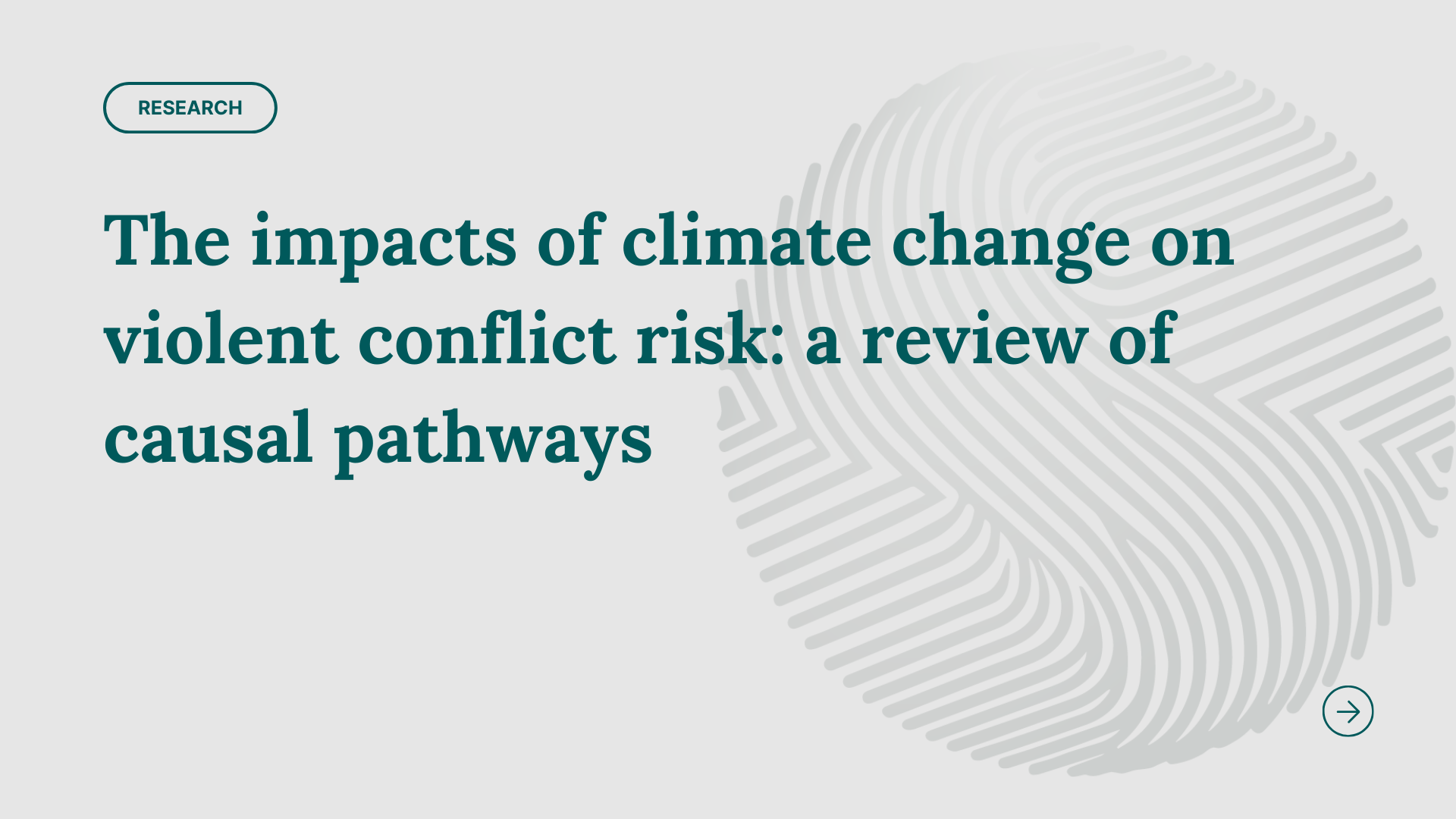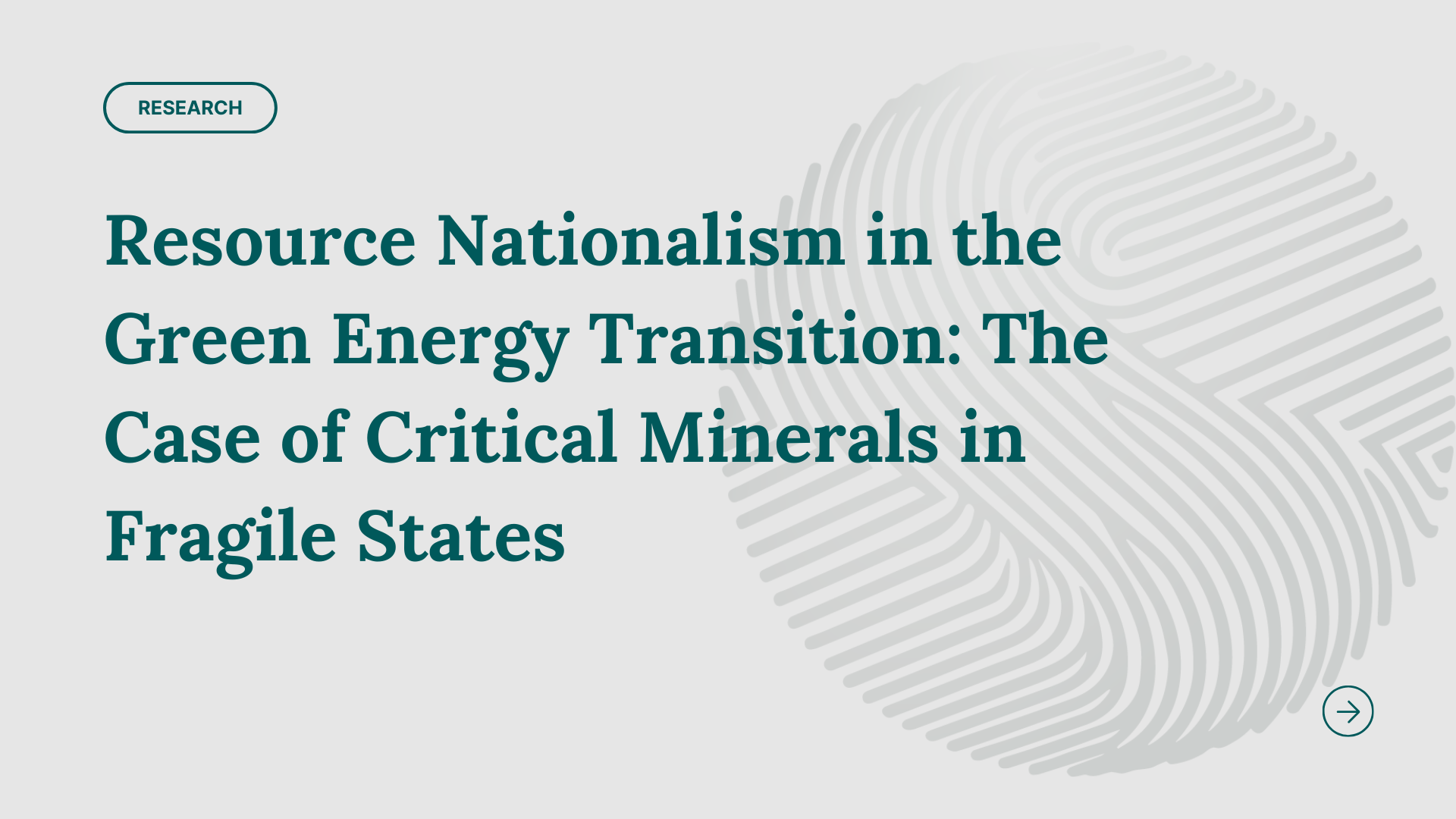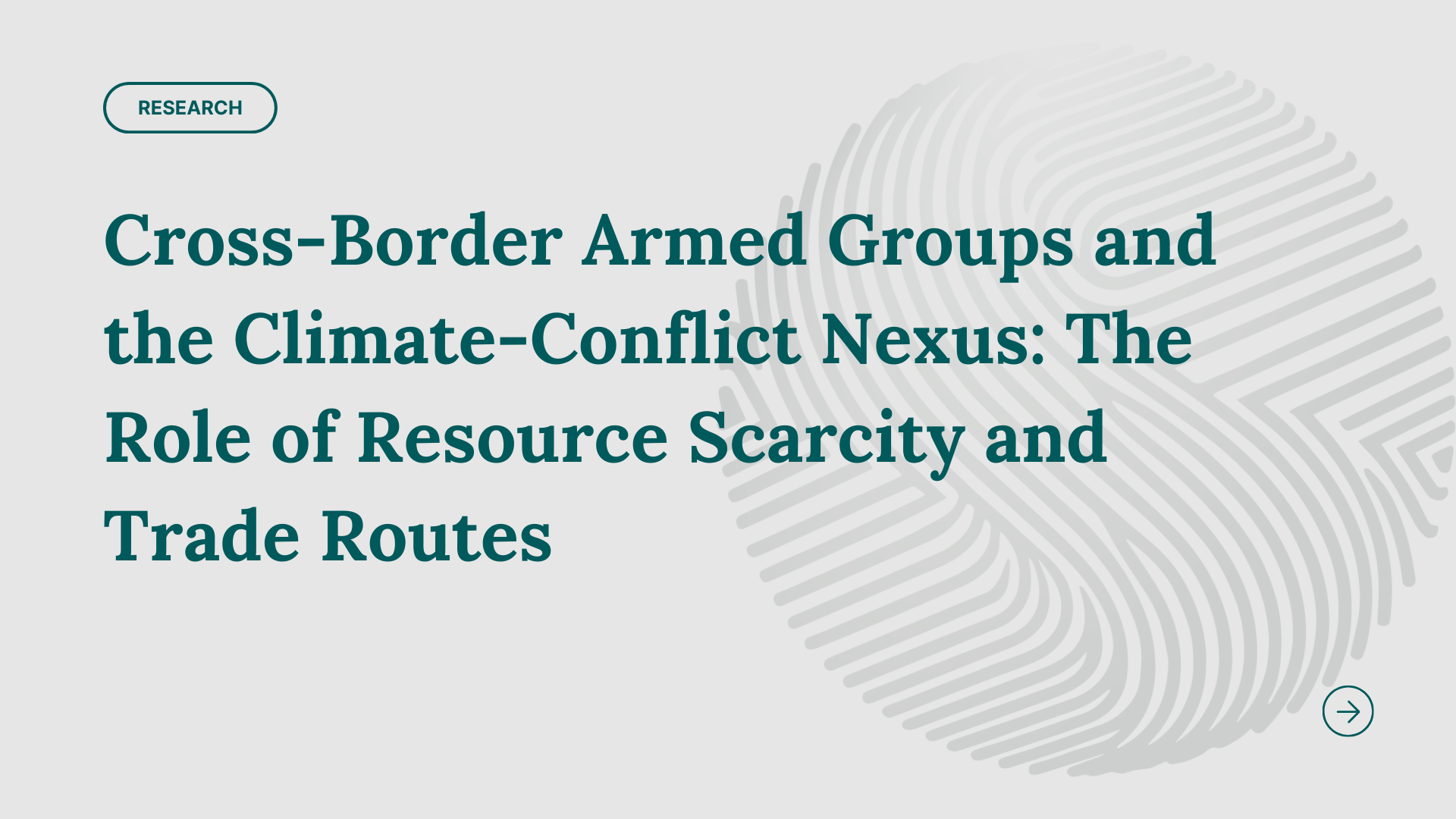Abstract
Climate-induced resource scarcity is reshaping transnational conflict dynamics, particularly in regions where armed groups rely on illicit trade routes for financing and logistics. This study examines how environmental stressors, such as droughts and desertification, influence the movement and operational strategies of cross-border armed groups in conflict-prone regions, including the Sahel, the Myanmar-Thailand border, and the Venezuela-Colombia frontier. Utilizing spatial conflict analysis, climate modeling, and interviews with local security experts, we assess how shifts in resource availability alter conflict patterns and illicit economies. The findings reveal that climate shocks disrupt traditional trade routes, leading to increased competition over smuggling networks and intensified territorial disputes. This research highlights the need for integrated climate-security policies that address both environmental resilience and conflict mitigation.
Author: Brianna Dickey (2025)
This is a working paper by the Stratum Institute for Global Action. Interested in contributing? Contact us!



